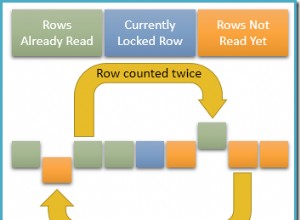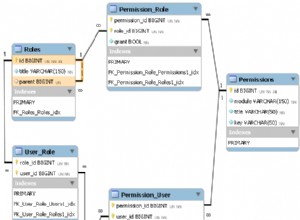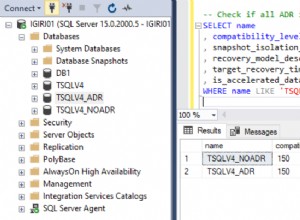Aby móc wybrać wszystkie kolumny, a nie tylko object_id i MAX(event_timestamp) , możesz użyć DISTINCT ON
SELECT DISTINCT ON (object_id)
object_id, event_timestamp ---, more columns
FROM test_select
ORDER BY object_id, event_timestamp DESC ;
Jeśli chcesz uporządkować wyniki według event_timestamp DESC a nie przez object_id , musisz uwzględnić go w tabeli pochodnej lub CTE:
SELECT *
FROM
( SELECT DISTINCT ON (object_id)
object_id, event_timestamp ---, more columns
FROM test_select
ORDER BY object_id, event_timestamp DESC
) AS t
ORDER BY event_timestamp DESC ;
Alternatywnie możesz użyć funkcji okna, takich jak ROW_NUMBER() :
WITH cte AS
( SELECT ROW_NUMBER() OVER (PARTITION BY object_id
ORDER BY event_timestamp DESC)
AS rn,
object_id, event_timestamp ---, more columns
FROM test_select
)
SELECT object_id, event_timestamp ---, more columns
FROM cte
WHERE rn = 1
ORDER BY event_timestamp DESC ;
lub zagregować MAX() z OVER :
WITH cte AS
( SELECT MAX(event_timestamp) OVER (PARTITION BY object_id)
AS max_event_timestamp,
object_id, event_timestamp ---, more columns
FROM test_select
)
SELECT object_id, event_timestamp ---, more columns
FROM cte
WHERE event_timestamp = max_event_timestamp
ORDER BY event_timestamp DESC ;




